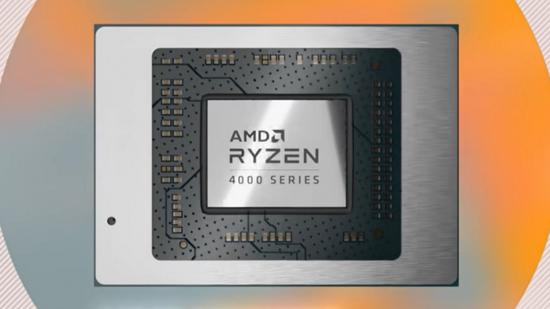Earlier this month we saw the AMD Ryzen 7 4700G hitting a staggering 4.7GHz, demonstrating the next-gen desktop APU’s overclocking ability. The overclocks that we’ve seen so far seem to show the flagship Renoir processor hitting clock speeds and benchmark results that contend with or surpass high-end Matisse CPUs like the Ryzen 7 3800X. And now we’re seeing how capable it is when it comes to memory overclocking, too.
The latest leaked CPU-Z images come from Chiphell forum user Duyue (via Twitter user 9550pro, aka HXL), and show the Ryzen 7 4700G sitting at 4,515.85MHz on all eight cores, achieved using a 45.25x multiplier with a VCore of 1.3875v – above the recommended voltage for daily use, for sure, but nothing a great motherboard (in this case, the B550 AORUS Master), CPU cooler, and trained hand can’t handle.
But where it really gets interesting is when you look at what was achieved with the memory – after all, we’ve already seen the 4700G reach higher clock speeds than this. Specifically, a 1:1 relationship between FCLK (Infinity Fabric clock speed) and memory clock/memory controller clock speed was achieved, while maintaining an incredibly high 4,400MHz RAM speed, by setting the FCLK to 2,200MHz.
AMD Ryzen processors are notoriously memory-dependent. You get a much better boost of performance by having super snappy memory than by overclocking your CPU by 100MHz. And low CL (CAS latency) timings are likely to give better performance boosts than faster RAM speeds – but combining the two and having super-quick RAM with low latency is always the goal.
AMD 47xx APU
IF 1:1 OC 2200Mhz!! DDR4 4400😱https://t.co/sSA0u5zjnu pic.twitter.com/Jc27x8byYe
— HXL (@9550pro) July 17, 2020
There’s more to it than this, though. Performance is also gained by keeping the memory clock ticking along at the same pace as AMD’s Infinity Fabric clock speed, meaning a 1:1 relationship between FCLK and clock speed is ideal. This is difficult to achieve above a certain clock speed, however, which is what makes this particular overclock so impressive.
So, here we have the AMD Ryzen 7 4700G hitting over 4.5GHz, and 4,400MHz memory sitting at a low CL14 timing with 1:1 FCLK to UCLK timings. Considering how reliant Ryzen is on memory, we can expect these results to translate to seriously impressive performance – and, in fact, Duyue claims the latency is reduced by 10ns with this overclock over the AMD Ryzen 7 3800X.
While it probably took a lot of voltage fiddling to achieve, it’s promising for any budding overclocker out there to know that these next-gen APUs have it in them to master their memory modules as well as their own clock speeds.
